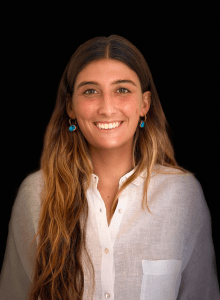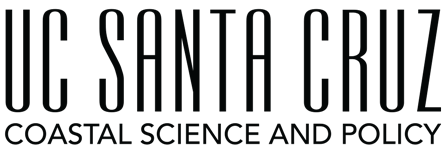

Engaging in Active Hope
As we greet this new year, with all its opportunities and challenges, CSP is sharing a talk by our director, Dr. Anne R. Kapuscinski, who is also Chair of the Board of Directors for the Union of Concerned Scientists (UCS). She gave a keynote talk on ‘active hope’ for the Homeless Garden Project’s Sustain Supper last summer. Active Hope, coined by eco-philosopher Joanna Macy, is an approach to taking on big challenges that result in positive outcomes by becoming active participants in bringing about what we hope for. The approach involves three key steps: take in a clear view of reality; identify what we hope for in terms of the direction we’d like things to move in or the values we’d like to see expressed; and, take steps to move ourselves or our situation in that direction. For both UCS and CSP, “the continual practice of active hope is applying our energy where we know we can make a difference,” says Kapuscinski.
“When it comes to the Coastal Science and Policy program at UC Santa Cruz – Active hope is at the heart of this graduate program. It’s why I fell in love with the program’s vision and answered the call from UCSC to move here to serve as inaugural Director. We recruit early career leaders and up their game to design and implement practical and socially just solutions to climate, biodiversity, and other sustainability challenges in coastal zones around the world. Each entering student has direct experience with one coastal challenge and often with trying to improve the situation,” says Kapuscinski. The stories of CSP students (read about students Cindy Matuch, Angelo San Pablo, and Alexandra Boutros below) and what they accomplish “illustrate why I now view our Coastal Science & Policy students and other emerging young leaders as Earth’s immune response rising up to heal the world. Their practice of active hope is what keeps me going and being their ally! May it inspire you too.”
Read the full talk and watch the video, here.
Left Top photo: From left: Brendan Miele (Board Chair, Homeless Garden Project), Anne R. Kapuscinski (Director, CSP), Darrie Ganzhorn (Executive Director, Homeless Garden Project)
Right Top photo: CSP class of 2026
How CSP Students Demonstrate ‘Active Hope’
Excerpt from Dr. Kapuscinski’s talk
A unique feature of the CSP curriculum is that we require each student to work closely with a partner from the private, non-profit or government sector to co-design a project to help solve one of the partner’s ‘pain points’ and spend an entire year implementing the project with their partner.

Ali Boutros, CSP class of 2024
Alexandra (Ali) Boutros – joined the Coastal Science and Policy program after working at an emerging startup using microalgae oils to replace petroleum in consumer goods. She was passionate about how algae could help solve environmental issues including climate change. Ali focused her graduate degree project on human dimensions of kelp restoration in California. Kelp forests—the rainforests of our ocean – are deeply intertwined with communities, livelihoods, and well-being; and the loss of kelp from the cascading impacts of the recent marine heat wave (2013-2016) had ecological, social and cultural implications, as well as economic losses. As Ali puts it “Humans are an integral part of the ecosystem and while we’re responsible for much of its destruction, we also have a huge part to play in its restoration.”
She partnered with the Nature Conservancy and the California Department of Fish and Wildlife to systematically compare two experimental, community-led kelp restoration efforts in California. Ali found that key elements of effective community-led restoration include: integrating local knowledge, expertise and community into the decision making process; and having ecological and social metrics of restoration success. And people impacted by kelp loss wanted to be part of the solution. Watch Ali’s capstone project presentation: Advancing Community-Led Kelp Restoration
Ali’s findings will be incorporated into kelp restoration and management plans being developed by her partner organizations. She was interviewed by Channel 8 (KSBW) in late May about this work. She’s now contracted to strengthen a draft “Science Roadmap” for CA Marine Restoration for the Ocean Science Trust. ALSO, she was named an Aspen Institute Future Climate Fellow, making her part of a growing network of Gen Z leaders. She came away from the Aspen Institute’s Future Leaders Summit in Washington, DC energized “[by the] young people who were actively pushing the boundaries of climate innovation. None of us were jaded (yet); there was enthusiasm and hope.” Ali is now working at MBARI as the Central & Northern California Ocean Observing System (CeNCOOS) Engagement Specialist. “As a coastal social-ecological scientist, I am especially excited for this role. I hope to leverage my skillset as a natural and social scientist with my expertise in facilitation, relationship-building, and community-engagement to increase the accessibility of climate & ocean science to coastal community members, fellow scientists, and policy-makers,” said Ali.

Angelo San Pablo, CSP class of 2024
Angelo San Pablo started the Coastal Science and Policy program with the goal to advance sustainable US marine aquaculture— in his words “to improve public awareness and understanding of aquaculture…[and] …ensure that the industry takes proactive steps towards equitable, transparent and responsible practices.” Aquaculture now produces over 50% of global seafood, but must be done sustainably. And the US imports 80% of our seafood, half of which comes from aquaculture. One way to reduce our seafood imports is through domestic, sustainable aquaculture for healthy seafood. Angelo saw that this is possible from previously working at Blue Ocean Mariculture in Hawaii. It’s the first US offshore fish farm to earn sustainability certification under rigorous standards of the non-profit, Aquaculture Stewardship Council.
Angelo focused his graduate project on reducing carbon emissions associated with feeds for farmed fish, partnering with Cargill Aqua Nutrition, one of the world’s largest aquaculture feed manufacturers. He successfully enhanced their carbon emissions reporting and expanded it to North America for the very first time, through their SeaFurther Sustainability program. He improved traceability of ingredients used to make feeds, identified which ingredients contribute most to carbon emissions and mapped out alternative ingredients to replace fishmeal and fish oil in aquaculture feeds. Reducing demand for fishmeal and fish oil– extracted from small ocean fish–will reduce pressures on ocean food webs especially in the face of climate change impacts. Watch Angelo’s capstone project presentation: ‘Sea’ing Further’: Closing Knowledge Gaps & Improving Sustainability along the Aquaculture Feed Supply Chain
Angelo also became a national advocate for centering youth voices in aquaculture and climate policy. He was named one of the first Future Leaders in the Coalition for Sustainable Aquaculture; and met with members of Congress in DC. Angelo is beginning his 2025 Sea Grant Knauss Marine Policy Fellowship next month in Washington D.C.

Cindy Matuch, CSP class of 2024
Cindy Matuch entered the Coastal Science and Policy program wanting to link science with policy to stop ocean plastic pollution. Since the 1950s, plastic production skyrocketed–increasing 230 fold and is projected to quadruple by 2050. A garbage truck’s worth of plastic pollution enters the ocean every minute, leading to marine animals entangled in or eating plastic and degrading into microplastics. Research shows plastic pollution moves through the food web and into our air, water and bodies, posing human health risks.
Scientific evidence should guide design of policies that tackle root causes of plastic pollution and encourage innovation in sustainable alternatives. Cindy began her graduate studies just when the UN started negotiations among 175 nations to create a global plastic pollution reduction treaty. So, for her year-long project, she partnered with Margaret Spring, Chief Conservation and Science Officer of the Monterey Bay Aquarium, to push for a strong, science-based and equitable Global Plastics Treaty. Attending two rounds of negotiations gave her the rude awakening that science was not central to the negotiations and wasn’t guiding decisions. Watch Cindy’s capstone project presentation: Bridging the Gap Between Science and Policy for Effective Plastic Pollution Reduction
In her own words, here is how Cindy approached this challenge: “My dream has always been to prevent plastic pollution from harming the ocean and marine life, which I cherish deeply. I’ve been dedicated to this mission over the past two years of my graduate studies. Initially, I saw plastic pollution as solely an environmental issue, but my perspective shifted when I learned the harmful impacts that plastic has on human health and communities of color.
From participating in the treaty negotiations “.. I realized the importance of a science- policy interface in the treaty. It connects people and values, making it essential for effective solutions. During the discussions, I listened to stories from Indigenous people, communities near petrochemical facilities, NGOs, academics, scientists, health professionals, and activists. They emphasized the significance of their knowledge in addressing plastic pollution. I now see the science-policy interface as the power of listening…. I believe that this collective listening and respect for diverse perspectives is the embodiment of a science-policy interface.
“I hope to continue connecting science to policy in this field, help inform decisions that impact everyone, and ultimately aim for a world without plastic pollution.”
Cindy is continuing with the team at the Monterey Bay Aquarium to drive development of a science-based and equitable global treaty, and also for a U.S. government wide strategy to tackle plastic pollution (released July 19, 2024 by the White House!). Cindy is also beginning her 2025 Sea Grant Knauss Marine Policy Fellowship next month in Washington D.C.
Ali, Angelo and Cindy each mobilized active hope. They drew on their deep longing for a better world and tapped into their own experience and the positive energy of others. – Anne R. Kapuscinski
Visit csp.ucsc.edu/news/ for blog posts about our students.
Visit ucsusa.org to learn more about the issues Union of Concerned Scientists experts work on, including sustainable agriculture and the role of science in our democracy. We have several campaigns you can sign on to that will alert your legislators of your support for climate-friendly policies and to protect federal scientists.
Visit homelessgardenproject.org/ to learn more about this local Santa Cruz nonprofit.

Homeless Garden Project farm in Santa Cruz.
